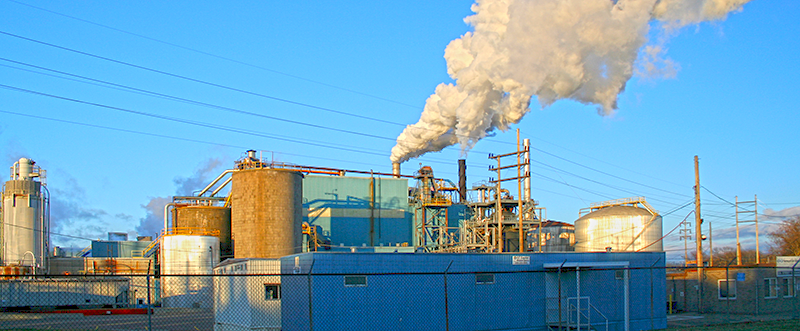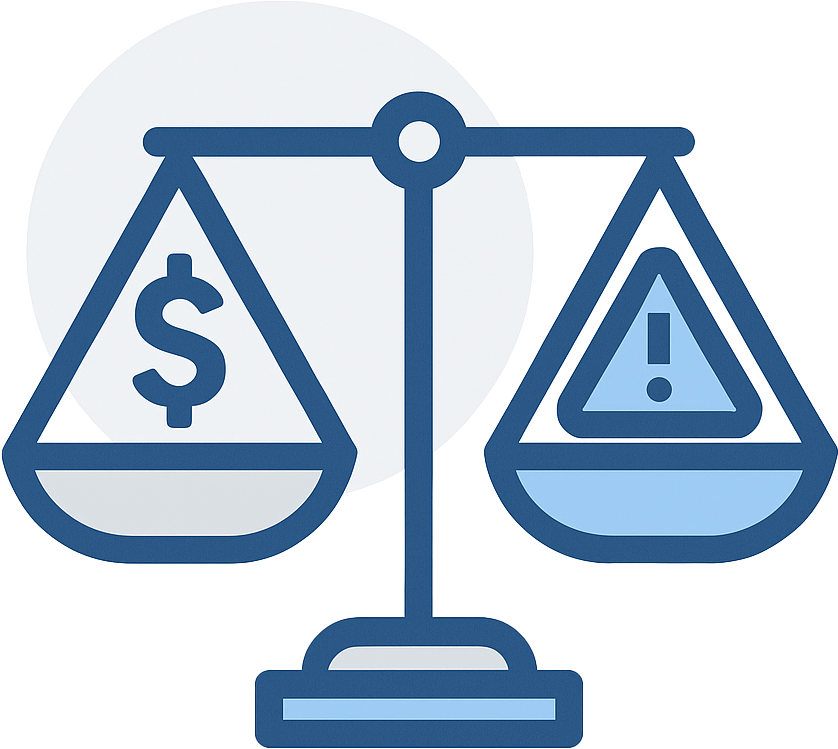We explain the differences between Tier II Community Right-to-Know Reporting & TRI Reporting.
Tier II Community Right to Know Reporting is just about done, which means (at least for us here in the office) we're starting to turn our sights onto Toxic Release Inventory Reporting. However, we're still getting folks letting us know "we'll get Community Right to Know done for the July 1st deadline" or "we just finished submitting our toxic release inventory information."
Unfortunately, both of those statements (which are real and from people who aren't our clients, just good friends...) are both WRONG!
The amount of confusion over these two reporting requirements is insane, but we get it. Both are confusing, both are poorly enforced, and the regulatory agencies in charge of them give you almost no guidance on them. No wonder people perpetually get it wrong!

Is Tier II Community Right-to-Know Reporting & TRI Reporting the same thing?
Federal EPCRA regulations require two very different types of annual reporting about the storage, manufacture, processing or use of hazardous and toxic materials at a wide range of facilities in the U.S. It’s critical to understand that they both are not the same and have very different criteria and requirements. If you don’t understand this, you could potentially risk significant penalties and other enforcement possibilities.
The answer to the question is so simple, but I’m not going to give it you right away (although I am sure you can guess where this is going...)
Here's a breakdown of both reporting requirements and some information about them:
Tier II Community Right-to-Know Reporting
- Required by the Federal EPCRA regulations, which stand for the Emergency Planning and Community Right to Know Act (also known as SARA, for the Superfund Authorization and Amendments Act), Sections 311 – 312.
- Also known as Community Right to Know Reporting or CRTK reporting.
- “Tier II” refers to the type of reporting that is commonly done nowadays, which is a summary of the hazardous materials at your site, rather than more detailed and laborious Tier I reporting.
- Required to provide emergency planning agencies and your community, in general, information on the hazardous materials you store at your facility.
- This information is usually provided to your state and local emergency planning agencies, which might include your local fire department, county emergency planning agency, etc.
- You are required to report on the presence of hazardous materials present at any one time in excess of 10,000 pounds for most chemicals (be advised that others have much lower reporting thresholds).

- Hazardous materials are identified by the presence of an SDS (formerly known as MSDS) as required by OSHA for hazardous materials. If you have an SDS for it, it’s hazardous for the sake of this reporting program.
- This reporting is usually done electronically, but some agencies might require paper copies of your reports.
- You have to report basic information on all hazardous materials over 10,000 pounds at any time (or less, depending on the material), such as amount stored on site, hazard rating, what it’s stored in, etc.
- This is required of almost all facilities that meet the definition above.
- NAICS / SIC codes are immaterial here. You meet the reporting thresholds, you have to report.
- Due March 1st of every year.
- All information reported is public knowledge, although there are some confidentiality provisions.
TRI Reporting
- Required by EPCRA / SARA Section 313, so sometimes called “SARA Section 313” reporting.
- It's short for Toxic Release Inventory Reporting.
- Requires reporting of the manufacture, processing, or use of toxic chemicals, throughout the course of a calendar year (not just at any one point in time), in excess of the typical reporting threshold of 25,000 pounds for most chemicals manufactured or processed, or 10,000 pounds for “otherwise used”.
- Many toxic chemicals have much lower reporting thresholds, some down to less than 1 pound! The more toxic the chemical is, the lower the thresholds. The threshold for each toxic chemical at your facility needs to be carefully evaluated.
- The specific toxic chemicals which need to be reported come from a list the USEPA publishes and updates each year, which currently contains over 650 toxic chemicals. That list is here, but do your homework and make sure it's accurate and up to date (it was as of the time of writing this, but it does change!)

- The toxic chemical can be present as a component in a mixture; you don’t need to have “pure toxic chemical” in order to meet the reporting requirements. Usually, the minimum concentration for reporting is 1% of a mixture (ie, it must be at least 1% of a mixture to be reported), but many chemicals have no lower limit concentration at all.
- It can be very, very tricky to know if there are toxic chemicals in the materials you use. While the best source of information is your SDS, they might not have everything on there you ‘ll need to report. You might have to rely on supplier information, trade journals, industry knowledge, or your own lab analyses. Just because you don’t know if it’s in there might not get you out of the need to report.
- Reporting is done electronically, and typically goes to the State and Federal environmental agencies.
- Reporting is required only for certain facilities which are listed by NAICS (formerly SIC) code. Although nearly all industrial facilities are required to report, there are some who don’t. You need to check carefully to see if it’s you.
- Due July 1st of every year.
- All information reported is public knowledge, although there are some confidentiality provisions.
So what’s the answer, is Tier II reporting the same as TRI reporting? NO.
Wait, hold on, one last time to point out the main differences:
| |
Tier II Community Right-to-Know Reporting |
TRI Reporting |
| What needs to be reported? |
Hazardous materials or chemicals, identified by having an SDS (MSDS) for them |
Toxic chemicals, from the USEPA List of Lists |
| Chemical use? |
Stored at any one time in excess of the reporting quantity |
Manufactured, processed or used over the course of a calendar year in excess of the reporting quantity |
| Thresholds for reporting? |
10,000 pounds at any point in time, although some may have lower thresholds |
25,000 pounds over the course of the year for manufacture or process, 10,000 pounds for otherwise use. Some chemicals have MUCH lower thresholds for reporting (check!) |
| Reporting deadline? |
March 1st of each year |
July 1st of each year |
So, now, what’s the answer?
Unequivocally, the answer is NO, they are not the same. Different things, different threshold amounts, different reporting, different deadlines. One does not count for the other, and if you need to do both, you need to do both.
To learn more about these two very different hazardous materials reporting regulations, click here to contact us or give us a call at 609-693-8301 to discuss your facility's needs today.













